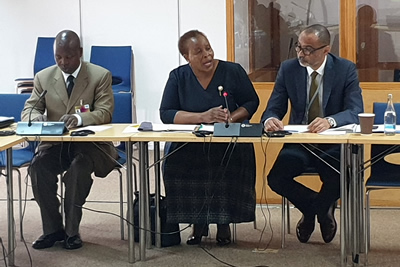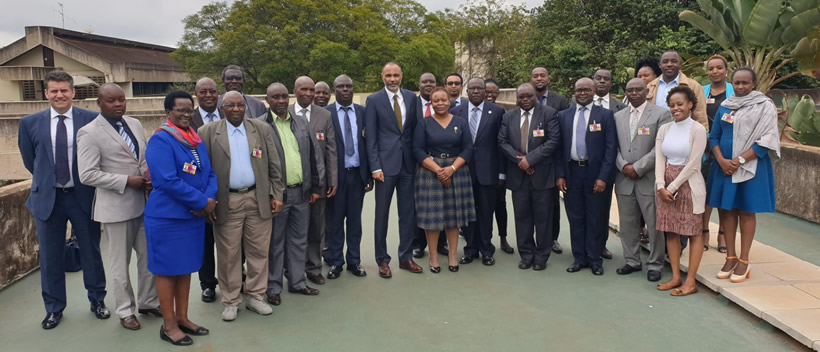Project seeks to enable Kenya to better measure how transport services feed into regional value chains to inform policymaking.
UNCTAD and Kenya’s Ministry of Industry, Trade and Co-operatives conducted a national seminar in Nairobi on 14 and 15 May to build the capacity to harness the country’s transport services to boost regional value chains.
More than 25 participants from 15 Kenyan public and private sector entities participated in the seminar.
“Small and medium-sized enterprises are crucial for the trade of services in Kenya,” said Joyce Ogundo, the country’s secretary of trade. “We must enhance their integration into global value chains to boost economic development.”
Several participants at the seminar emphasized the importance of mapping transport services, especially in relation to horticulture and tea value chains, the country’s key merchandise export sectors.
“Our project seeks to enable Kenya to get a better picture of how transport services feed into regional value chains and how much of the value is added by domestic and foreign operators,” said Paul Akiwumi, director of UNCTAD’s division for Africa and least developed countries.
The initiative seeks to provide a range of tools to assess the target value chains and support the development of evidence-based transport policy recommendations for fostering deeper regional integration for the benefit of both Kenyan and neighbouring operators.
Besides Kenya, UNCTAD and the United Nations Economic Commission for Africa are supporting five other countries – Ethiopia, The Gambia, Mali, Nigeria and Togo – to better measure the contribution of specific services to regional value chains to inform policymaking.
Services’ key role in regional integration
Regional integration is a top priority for Africa, and services play an important role in this process.
African leaders and nations have shown their commitment to regional integration by signing the African Continental Free Trade Area (AfCFTA) agreement, so far signed by 52 countries and ratified by 22.
The AfCFTA, seeks to establish a single market for goods and services, in addition to promoting the free movement of people.
Moving towards an integrated market for services has, however, been challenging.
One of the stumbling blocks to the implementation of trade services-related policies in many countries is the limited quantification of services’ trade.
Another challenge is the limited appreciation of the significant role that services play in regional and global value chains.
Research shows that services are essential to countries’ ability to participate in global and regional value chains.
The fragmentation of production across countries requires the provision of effective services in sectors such as information and communications technology, finance and logistics, as international trade is mainly organized through global and regional value chains.
Moreover, services are often the activity with the highest value addition in value chains.
The challenge is not only to know how much services an economy generates, but also the role played by domestic and/or foreign firms.
However, in many countries, this information is difficult to find or is simply unavailable.
Kenya is focusing on transport services, which are indispensable for trade in goods and most value chains, and critical for regional integration and economic development.
The share of transport, storage and communications in the country’s gross domestic product has been increasing over the last 20 years. It exceeded 9% in 2017, higher than both the African and global average.
In international trade, transport services’ exports account for around 35% of total services’ exports.


